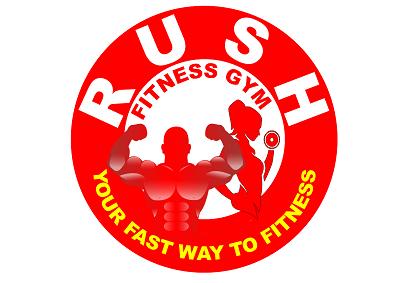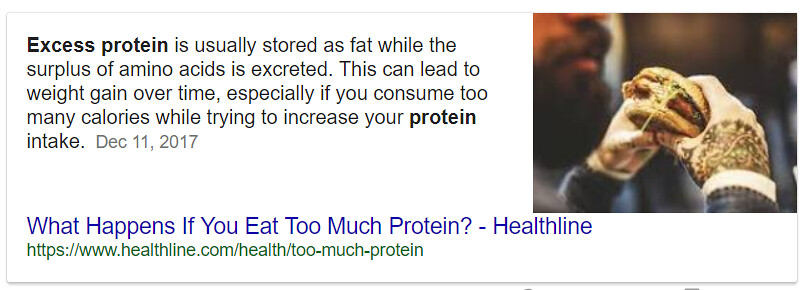Overview
You’re probably familiar with high-protein diets that are currently popular. The Atkins diet and the Zone diet are two examples. High-protein diets are said to help you to reduce fat, lose weight, and develop muscle.
Protein is an essential part of a healthy diet. It helps to build and repair muscle, organs, and bones. However, nutritional experts don’t advocate exceeding the recommended amount.
When calculating totals, include mostly protein from your diet. But you may also include supplements if needed.
Continue reading to learn about the risks of a high-protein diet.
While there are potential benefits to a high-protein diet, like increased satiety and muscle retention, it’s important to be aware of the risks.
Excess protein in the body is related to several health concerns, especially if you follow a high-protein diet for an extended period.
Weight gain
High-protein diets may promise weight loss, but it may only be short term. Excess protein is usually stored as fat while the surplus of amino acids is excreted. This can lead to weight gain over time, especially if you consume too many calories while trying to increase your protein intake.
A 2016 study found that weight gain was significantly associated with diets where protein replaced carbohydrates, but not when it replaced fat.
Bad breath
Eating large amounts of protein can lead to bad breath, especially if you restrict your carbohydrate intake. Forty percent of participants in a 2003 registry reported bad breath. This could be in part because your body goes into a metabolic state called ketosis, which produces chemicals that give off an unpleasant fruity smell.
Brushing and flossing won’t get rid of the smell. You can double your water intake, brush your teeth more often, and chew gum to counter some of this effect.
Constipation
Forty-four percent of participants from the same 2003 study as above reported constipation. This is because high-protein diets that restrict carbohydrates are typically low in fiber.
Increase your water and fiber intake. You may wish to track your bowel movements.
Diarrhea
Eating too many dairy or processed foods coupled with a lack of fiber in your diet can cause. This is especially true if you’re lactose intolerant or consume protein sources such as fried meat, fish, and poultry. Eat heart-healthy proteins instead.
To avoid diarrhea, drink plenty of water, avoid caffeinated beverages, and increase your fiber intake.
Dehydration
Your body flushes out the excess nitrogen with fluids and water. This can leave you dehydrated even though you may not feel more thirsty than usual. A small 2002 study on athletes found that as protein intake increased, hydration levels decreased.
Increase your water intake to reduce this effect, especially if you’re an active person. Drink plenty of water throughout the day.
Kidney damage
Following a high-protein diet for an extended period can increase your risk of kidney damage. Eating too much protein can also affect people who already have kidney disease. This is because of the excess nitrogen found in the amino acids that make up proteins.
Your kidneys have to work harder to get rid of the extra nitrogen and waste products of protein metabolism.
The same 2002 study from above found that consuming high amounts of protein led to abnormal BUN (one measure of kidney function) and a more concentrated urine.
Increased cancer risk
High-protein diets have been linked to an increase in cancer, possibly due to higher levels of meat-based protein consumption. Eating more meat is associated with colon, breast, and prostate cancer.
Studies have shown a decreased risk of cancer for people who don’t eat meat. Scientists believe this could be due, in part, to hormones, carcinogenic compounds, and fats found in meat.
Heart disease
Eating lots of red meat and full-fat dairy foods as part of a high-protein diet may lead to heart disease. This could be related to higher intakes of saturated fat and cholesterol.
According to this 2010 study, eating large amounts of red meat and high-fat dairy was shown to increase the risk of coronary heart disease in women. Eating poultry, fish, and nuts lowered the risk.
Calcium loss
Diets that are high in protein and meat may cause calcium loss. This is sometimes associated with osteoporosis and poor bone health.
A 2013 review of studies found an association between high levels of protein consumption and poor bone health. However, another 2013 review found that the effect of protein on bone health is inconclusive. Further research is needed to expand and conclude upon these findings.
The recommended daily amount of protein is 56 grams for the average man and 46 grams for the average woman.
Or you can calculate how much protein you need by your body weight. Most adults need 0.8 grams per kilogram of body weight.
People who exercise primarily with weights or body weight for more than one hour most days of the week may need up to 1.2 to 1.7 grams per kilogram of body weight.
Consuming more than 2 grams per kilogram of body weight each day is considered excessive.
When choosing high-protein foods, be sure to select healthier options. This can help lower your risk for some of the negative high-protein diet effects. Healthy sources of protein include:
- grass-fed lean meats and pastured poultry
- wild fish
- eggs from pastured hens
- low-fat grass-fed and organic dairy
- legumes
- nuts
- whole grains
Try to avoid high-fat meats and dairy products as well as fried or processed protein sources. Eat heart-healthy proteins instead.
It’s important that you take the risks into consideration before starting a high-protein diet. High-protein diets may be suitable for certain people. Always speak to your doctor before beginning any new diet, especially if you have any health conditions.
Your doctor and dietitian can guide you to weigh the pros and cons of a high-protein diet based on your individual needs.
Overall, it’s important that you eat a healthy, balanced diet and engage in an active lifestyle. Align your plan for achieving goals that you have, whether it’s weight loss or muscle gain, in a way that’s most beneficial to your health and that you can sustain long term.
Source :healthline.com
Don't forget to share and like!

